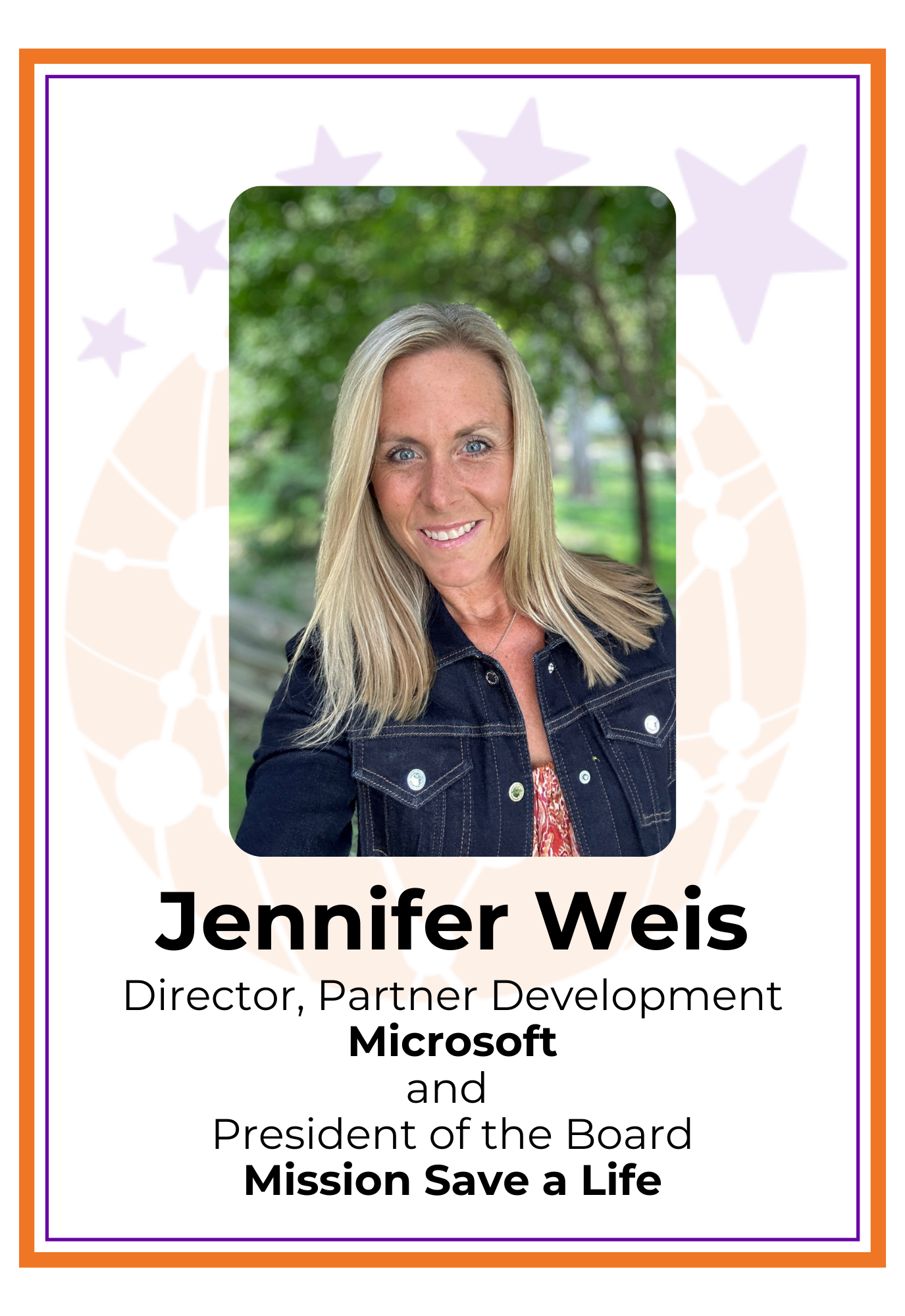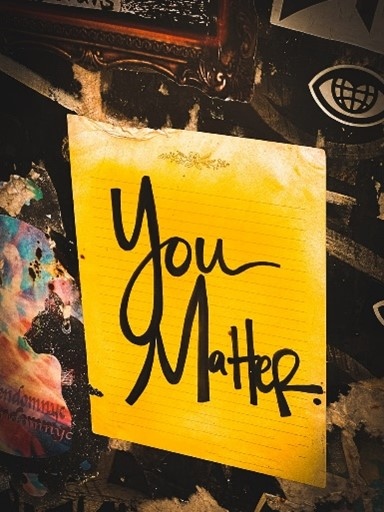WIT Wellness Blogs
How are you doing? No really, how are you doing?
Women so often put ourselves last on the list and it is impacting our mental health and wellness. So many published articles on how women have truly suffered during the pandemic. How are we going to take our wellness back? This page highlights articles from our Inspiring News Newsletter as well as other forums.


Unlocking growth through gratitude
In the fast-paced world of tech, it’s easy to get caught up in deadlines, product launches, and the constant evolution of the industry. As women who work in this dynamic industry, our personal growth can sometimes feel like an afterthought, overshadowed by the race to keep up with the latest trends and innovations. However, one powerful yet often overlooked tool for both personal and professional growth is gratitude.
In this article, we unpack how gratitude is not just a feel-good concept or a fleeting emotion; it’s a practice that, when cultivated intentionally, can lead to significant personal transformation. Whether you’re aiming to move up the corporate ladder, pivot to a new role, or simply develop more balance in your life, integrating gratitude into your routine can offer clarity and foster continuous growth.
Read the full story HERE


Mission Save a Life
Last December, the phone rang with the shocking news: her son’s best friend had taken his own life. The questions flooded in: How did we not see this coming? What could we have done differently? Incredibly, five more young men in her community took their own lives before the month’s end. Jennifer soon learned a term she had never encountered before: ‘suicide cluster.’ This was her first glimpse into the alarming reality of a growing epidemic—every 11 minutes, someone loses their life to suicide.
In this article you’ll learn how Microsoft Director, Jennifer Weis, leveraged her skills to launch Mission Save a Life, a collaborative non-profit dedicated to innovative approaches to suicide awareness and prevention. You’ll also learn about the warning signs, how to have a conversation with someone you suspect is struggling, and how to get involved.
Read the full story HERE


Rescaffolding your life: Reassessing commitments for personal and professional growth
As the back-to-school season approaches and summer winds down, it presents an excellent opportunity to reassess and recalibrate our lives. This period is not just for students returning to their studies; it's also an ideal time for everyone to reflect on their personal and professional journeys. The concept of "rescaffolding" involves restructuring and strengthening the framework of our lives to support growth and change. By taking the time to assess and adjust our goals, we can enhance our well-being, focus, and overall life satisfaction.
Read the full story HERE


Productivity according to the rhythms of nature
In the rush of modern life, catching a glimpse of the rhythms of nature offers a profound sense of ease. Nature moves with a steady cadence, a dance of seasons that reminds us of a time when human activities were closely tied to these natural cycles – whether it’s the sudden flourish of green growth after winter, the building score of birdsong in spring, or the coordinated hush as critters of the forest, meadows, and waters sequester under the watch of changing leaves. Observing this natural rhythm can be a balm to our busy lives, offering a reminder that there is a time for every purpose under the sun.
As cultures have "advanced," much of our work has become seasonless, detached from the cycles of nature. This detachment has its conveniences: we can arrange our schedules according to our preferences, family needs, or organizational demands. The flexibility allows us to feel more in control of our timelines, immune to the whims of late frosts, overrun banks, or overly dry springs. However, while there is comfort in this independence from nature's unpredictable patterns, we miss the valuable lessons embedded in the natural rhythms.
Read the full story HERE


The Third Shift: How women make up the emotional and relational workforce
Women have made significant strides toward gender equality, excelling in various fields and industries. However, the COVID-19 pandemic revealed that many women still bear the majority of household and domestic responsibilities, a phenomenon coined "second shift" as far back as 1989. Despite equal participation in the workforce, women spent an additional 15 hours per week on domestic labor compared to men during the pandemic, forcing women out of silence and catalyzing a moment for change. As a result of heightened awareness, many organizations implemented policies to support caregivers, yet significant challenges persist. Which leads us to wonder: If we know better, why aren’t we doing better?
One reason may be a related phenomenon: the "third shift." The concept of the third shift, building on the terminology of the second shift, describes the emotional and relational labor women undertake at home and work. At home, this involves the ongoing mental load of planning and organizing household life, events, tasks, and relationships. In the workplace, this includes managing emotions, resolving conflicts, and supporting colleagues—tasks often unrecognized and uncompensated. Could the invisibility of this labor be inadvertently undermining our progress toward gender equity in the workplace and beyond?
Let’s take a look at what third shift is, some of the ways it manifests in the current era, the implications on women’s personal lives and career progression, and what we can do today.
Read the full story HERE


5 ways to support women’s mental health at work
Once upon a time, mental health seemed to be a fringe issue that affected the few. Today, it’s hard to see it as anything other than an everyone issue. We’ve all experienced significant cycles of uncertainty, compounded stress, increased responsibilities, and burnout.
According to an article in the Harvard Business Review, While women and men face similar rates of mental health conditions overall, women face specific challenges around mental health in the workplace.
READ THE FULL STORY HERE


Develop resilience to support sustainable mental health
Resilience is essential for maintaining good mental health. Life is full of stressors, and the ability to adapt and bounce back from these stressors is critical to maintaining mental wellbeing.
When faced with adversity, resilient individuals are better able to maintain a positive outlook and avoid feelings of helplessness and despair. They are also better equipped to cope with the symptoms of mental health conditions such as anxiety and depression.
Resilience is also a key ingredient to developing a sense of purpose and meaning in our lives. When faced with challenges, resilient individuals are more likely to view these experiences as opportunities for growth and personal development.
READ THE FULL STORY HERE


WIT reads: Books to stir your mind and soul
History isn‘t what happened. It‘s who tells the story. – Sally Roesch Wagner
Summer is a great time to lounge—beachside, poolside, hammock, dock, or deck—and read. Wherever your chosen location, why not pack some books that stir your soul, make you think, make you question? As we know from our HER Story blog series, sharing female narratives is tremendously powerful.
These seven recommended reads are all beautifully written non-fiction books from female authors. Each shares the author‘s experiences, awakening understanding of herself and the world, and uses the power of story to incite the reader into looking at the world, our own experiences and circumstances, a bit differently.
READ THE FULL STORY HERE


How to protect your mental health during times of challenge and change
We have to protect our minds and our bodies, and not just go out and do what the world wants us to do.
– Simone Biles, the best gymnast in the world and member of the USA Olympic Team
Biles made the decision not to compete in the Olympic gymnastic finals. For many fans it was heartbreaking; however, in taking that action she showed the world how you must set boundaries and show up for yourself first. The Olympics only happen every four years. That‘s four years of preparation and training she‘s put into that moment, and she chose her mental health over the chance at a medal.
We can all learn from the strength that Biles demonstrated.
READ THE FULL STORY HERE

Understanding Trauma, Emotional Intelligence and Growth to Strengthen Your Leadership
Knowing yourself is the beginning of all wisdom. – Aristotle
Are you and your people exhausted or burned out? Are you wondering how to manage as things continue to shift and change? Are you experiencing anxiety about what the new normal will look like?
Using compassion, emotional intelligence, and adult development to understand the past year, you can create a plan for recovery and renewal for yourself and your team. Understanding the impact of trauma and development can help support your work leading growth and change, as well as support the important work of diversity, equity, inclusion, and anti-racism.
READ THE FULL STORY HERE


How to find the spark of connection to create meaningful mentoring relationships
Mentorship is an exchange of wisdom. In order for us to learn from one another and from our lived experiences, we first have to find that spark of connection. – Sarah Haggard, Founder and CEO, Tribute
Storytelling has transformative power. By sharing stories with each other, we are able to learn, grow, empathize, discover commonalities and celebrate differences. Stories emotionalize information, allowing us to feel and connect rather than just hear.
A growing body of science study shows that on functional MRI scans, many different areas of the brain light up when someone is listening to a narrative, Neeley says — not only the networks involved in language processing, but other neural circuits, too.
READ THE FULL STORY HERE


Self-care is your individual mobile marketing campaign
More than ever before, the demands on leaders in the public sector are physically, mentally, emotionally, and professionally demanding. To perform at your optimal level, you must develop specific strategies and safeguards to protect your leadership capacities and remain sensitive and responsive to the needs of your employees. These strategies fall under the umbrella term of self-care. They are actions that help you be as outstanding and successful as possible, and they look different for everyone.
Self-care has become a marketable buzzword. Buy into this strategy, this app, this idea, and you’ll be practicing self-care. But what is self-care really? And how do you know if you are doing it correctly?
Are you doing self-care wrong?
Not all self-care is beneficial. You know you are doing it wrong if you:
- Buy into someone else’s definition of self-care
- Compare your self-care
- Think self-care means eating, drinking, and doing whatever you want
- Don’t match your inner dialogue to your outer care
READ THE FULL STORY HERE


Setting goals that you can live with and stick with
For many, a new year means new goals and resolutions. However, by mid-February, we often find ourselves slipping back into old habits or losing sight of the goals we’ve set out. Yet, year after year, we keep setting goals, sometimes the same goals, in the hope that—this time—we’ll reach them.
Establishing goals is good for us. They give us a sense of meaning and purpose. Having career goals helps to keep us interested and engaged even when the work isn’t always interesting or engaging. If we see that we are making progress toward what we want, we feel motivated.
READ THE FULL STORY HERE


Decrease depression and anxiety:
Tap your way through the holidays and into a less stressful new year
Holidays aren’t always cheery and bright. Isolation, social and financial pressures, the desire to create a perfect holiday, or the absence of loved one can increase depression and anxiety rates over the holidays. For those who struggle during the season, you need to put in place measure that ensure your wellbeing, such as setting boundaries to help alleviate some holiday pressure. We have a webinar to help with that – watch Set Yourself Free by Setting Boundaries.
Also, Tapping can help.
What is Tapping?
Emotional Freedom Technique (EFT) aka Tapping is a self-help stress reduction technique you can use to reduce anxiety and depression, alleviate chronic pain, get better sleep, and even help your kids and family members. You can use this powerful technique anywhere to help reduce your stress in a matter of minutes.
It involves tapping specific points on the body using your fingers, primarily on the head and the face, in a specific sequence. While performing the tapping, the person focuses on the issue that’s bothering them.
READ THE FULL STORY HERE


Eleven tips to help you spring forward into possibility
There is an opportunity for us to renew ourselves. There’s an opportunity for us to leave the past behind and present something different for the future.
– Jay Weatherill, Former Premier of South Australia
We’ve all had many sleepless nights, probably even more than usual over the past two years. Nights spent worrying about family, friends, finances, and work. I’ve spent many nights tossing and turning, worrying over something that happened in the past. I’ve fretted over past choices and actions, so focused on them that I’ve let them dictate my future. I’m sure many of our community members have been there at some point—that I am not alone.It may be worries over something small, like making a horrendous first impression, or saying something you wish you hadn’t, to something big, like shutting down a division or business or letting a trusted team member go. Dwelling on negative experiences is painful. When we hold on to that discomfort, we are unable to move on to something more positive.
READ THE FULL STORY HERE

** If you would like to be a contributing editor for a blog story, please reach out to Ndennis@thewitnetwork.com.

